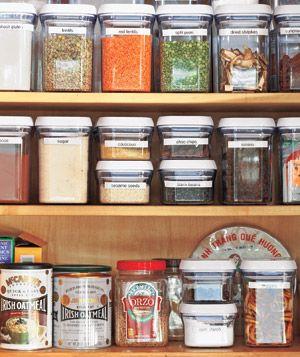What disrupts the gut microbiome?
The microbiome, the intricate ecosystem of trillions of microorganisms living in and on our bodies, plays a fundamental role in our overall health. These microbes aid in everything from digestion and nutrient absorption to immunity and mental health. However, this delicate balance can be disrupted by various lifestyle and environmental factors. Here, we dive into ten key factors that can cause gut dysbiosis and offer strategies for preserving the gut microbiome.
1. Antibiotics Use
Antibiotics are a double-edged sword. While they are essential in combating bacterial infections, they can also indiscriminately destroy beneficial bacteria within the gut. This can lead to a condition known as dysbiosis, a disruption of the microbial balance, which can further contribute to health issues like gastrointestinal disorders and obesity. Whenever possible, antibiotics should be used judiciously, and post-antibiotic gut health recovery, including the use of probiotics and a diet rich in fibre, should be considered.
2. Diet
The food we consume directly impacts our microbiome. A diet high in processed foods, sugars, and unhealthy fats can diminish the diversity and abundance of beneficial microbes. On the other hand, diets lacking in dietary fibre, the primary food for these microbes, can also disrupt the microbial balance. To nourish your microbiome, focus on a balanced diet abundant in diverse plant-based foods, lean proteins, healthy fats, and rich in fibre.
3. Chronic Stress
Constant exposure to stress can lead to significant changes in your gut microbiome, influencing its composition and function. Additionally, these changes can further impact your physiological stress responses, creating a vicious cycle. Incorporating stress management strategies such as meditation, yoga, deep breathing exercises, or simply engaging in hobbies you love can help maintain a balanced microbiome.
4. Lack of Sleep
Our body's circadian rhythm, the internal clock regulating the sleep-wake cycle, is closely tied to the microbiome. Disruption in sleep patterns can disturb the balance of the gut microbiome, and conversely, an imbalanced microbiome can lead to poor sleep quality. Prioritise sleep hygiene by establishing regular sleep schedules, limiting screen time before bed, and creating a quiet, dark, and cool sleep environment.
5. Alcohol Consumption
While a moderate amount of certain types of alcohol, like red wine, might provide some prebiotic benefits, excessive consumption can lead to dysbiosis. Chronic heavy drinking can negatively affect the gut barrier, leading to a condition called "leaky gut," contributing to inflammation and other health issues. Moderation and balance are keys in alcohol consumption.
6. Smoking
Smoking can have adverse effects on the gut microbiota, increasing the risk for conditions like inflammatory bowel disease and colorectal cancer. It alters the diversity of gut microbiota and encourages the growth of harmful bacterial strains. Quitting smoking can significantly improve gut health, often restoring the microbiome to a healthier state.
7. Sedentary Lifestyle
Physical inactivity is linked with a less diverse gut microbiome. Regular exercise can promote the growth of a variety of beneficial bacterial species, improving gut health and boosting immune function. Incorporate regular physical activity into your routine, whether it's walking, running, cycling, or weight training.
8. Age
Natural aging impacts the composition of the microbiome, often leading to a decrease in microbial diversity. This phenomenon may contribute to various age-associated health issues. While we can't stop aging, maintaining a healthy diet and lifestyle can help support a diverse and balanced microbiome as we age.
9. Illness and Medication
Certain illnesses, especially those that directly affect the gut like inflammatory bowel disease, can cause substantial upheaval to the balance of the microbiome. Furthermore, it's not only antibiotics that can impact your gut flora—various other medications such as non-steroidal anti-inflammatory drugs (NSAIDs), proton pump inhibitors, and certain antidepressants can also cause gut dysbiosis. Whenever starting any new medication, it's important to consult with healthcare professionals and consider the potential impacts on your gut health.
10. Environmental Factors
The environment in which we live plays a pivotal role in shaping our microbiome. Long-term exposure to pollutants, toxins, and even areas with heavy traffic can negatively impact the delicate balance of our gut flora. Furthermore, excessive hygiene practices can reduce our exposure to beneficial microbes. Minimising exposure to environmental toxins, drinking filtered water, eating organic food to limit pesticide intake, and balancing cleanliness with the need for some microbial exposure, can all help support a healthier microbiome.
Maintaining a balanced and diverse microbiome is vital for our overall health and well-being. From the food we eat, the medications we take, to our lifestyle and environment, numerous factors can impact our gut health. By understanding these influences, we can make informed decisions and modifications to our lifestyle and diet, to promote a healthier, balanced microbiome.
Adopting a diverse, fibre-rich diet, managing stress, ensuring good sleep hygiene, avoiding unnecessary antibiotic use, incorporating regular physical activity, quitting smoking, moderating alcohol intake, considering the effects of medication, and limiting exposure to environmental pollutants are all actions we can take to support our microbiome.
In the end, caring for our microbiome is a significant step in nurturing our overall health. As scientists continue to unravel the complex roles played by our microscopic partners, it's clear that these tiny organisms have a massive impact on our health and well-being. Small, consistent changes can make a substantial difference. A proactive approach to preserving our microbiome will undoubtedly pave the way for better health and disease prevention.
If you're seeking guidance and support for optimising your microbiome, we are about to launch our 4-week Happy Belly Blueprint Program, designed to provide you with the tools and knowledge you need to enhance your gut health and overall well-being.
This program is your go-to resource for unravelling the mysteries of the microbiome and understanding how it impacts your mood, energy, weight, skin, and gut health. With education led by our functional medicine specialist, practical strategies, and microbiome-enhancing recipes, you'll embark on a transformative journey to restore balance and harmony within your microbiome. Say goodbye to confusion and hello to a happier, healthier gut with our comprehensive program. Join us today and discover the incredible potential of a thriving microbiome!


